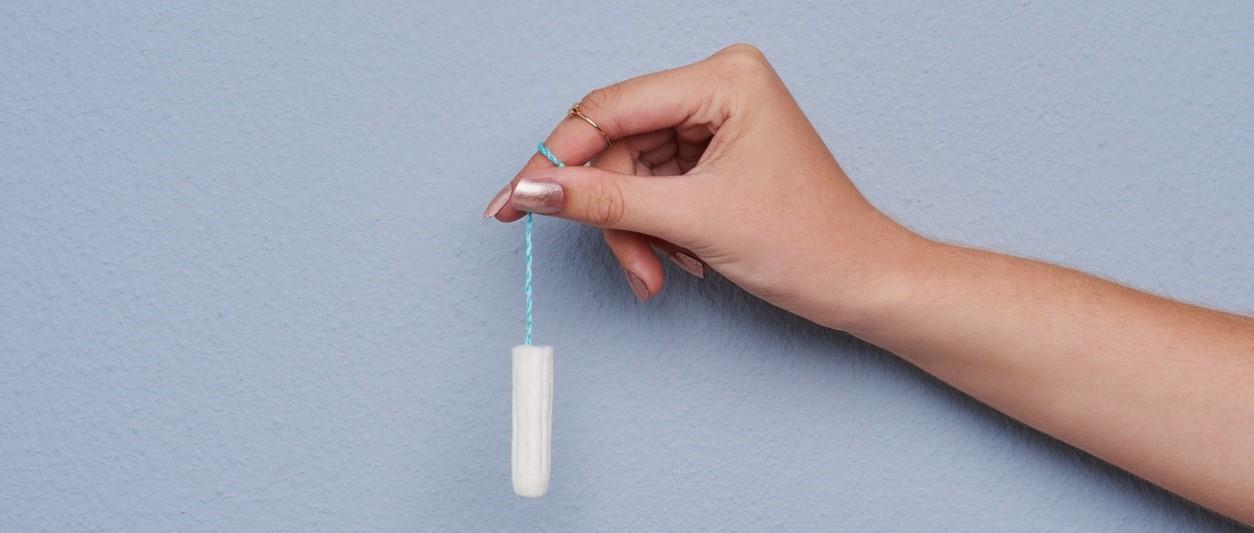
Vaginal ‘health gummies’ - Why the trend for improving our vaginas is harmful
Peer reviewed by Dr Krishna Vakharia, MRCGPAuthored by Lydia SmithOriginally published 20 Jul 2023
Meets Patient’s editorial guidelines
- DownloadDownload
- Share
- Language
- Discussion
Celebrities are always endorsing new health products and this year, Kourtney Kardashian launched a vitamin gummy sweet called Lemme Purr - which claimed to boost the health of your vagina. On her Instagram channel, she said vaginal health wasn’t talked about enough, and said the sweets - which are taken by mouth - use pineapple, vitamin C and probiotics to target vaginal health and support “freshness and taste”.
Although it’s true that vaginal health is important and often overlooked, some vaginal products may cause more harm than good - and perpetuate unhelpful myths about vaginal cleanliness.
In this article:
The Lemme Purr gummies are the latest product claiming to improve our vaginal health, but they aren’t the first. From gummies and supplements to gems, the women’s wellness market is crammed full of similar products - many of which make claims that aren’t backed up by science.
In 2018, Gwyneth Paltrow’s lifestyle brand Goop was fined $145,000 (£112,000) for making false claims about their jade and rose quartz ‘vaginal’ eggs. Goop said the stone eggs, which are inserted into the vagina, could balance hormones and regulate menstrual cycles, among other benefits - promises widely dismissed by gynaecologists as being unscientific.
The problem with such products is that they aren’t always just a waste of money. Putting unnecessary items into your vagina can disrupt the balance of good and bad bacteria, which can lead to infections and other problems. And the claims made by wellness companies - including that vaginas need to be cleansed with gemstones, or can be freshened with sweets - propagate health misinformation and myths around women’s health.
Continue reading below
Vaginal products may affect healthy bacteria
One of the main problems with vaginal wellness products is that they risk upsetting the fine balance of bacteria in the vagina. The vagina is full of 'good' bacteria, known as the vaginal microbiome, which is important for genital health1. However, putting unnecessary items into your vagina risks the spread of bad bacteria, which can lead to problems.
Dr Leila Frodsham, consultant gynaecologist and spokesperson for the Royal College of Obstetricians and Gynaecologists, says: “The vaginal microbiome is a collective term for the microbes or bacteria found in the vagina. The vagina has a delicate and healthy balance of bacteria which help to keep it free from infections such as thrush and bacterial vaginosis.
“There is a growing commercial market of feminine hygiene products,” adds Frodsham. “Some of these can actually disrupt the microbiome, and may cause bacterial vaginosis, thrush and in some cases vulvitis - inflammation of the vulva - that can cause sexual pain.”
Thrush is a yeast infection caused by the Candida species of fungus. Although it usually lives inside the vagina, it is kept under control by our bacteria - but if the balance of this bacteria changes, it can multiply and cause symptoms like white discharge, itching, irritation and soreness.
Bacterial vaginosis, which also happens if harmful bacteria overtake good bacteria in the vagina, can lead to itchiness, discharge and an unpleasant smell. If untreated, it can increase the risk of getting an STI - and it has been linked to pregnancy complications such as premature birth.
Myths about vaginal cleanliness
Back to contentsThe wide variety of vaginal health products on offer highlight another issue - often, they feed into anti-feminist myths surrounding the vagina, including that they are unclean. Products that claim to improve the ‘taste’ - like the Lemme Purr gummies - send out the message that the vagina is unacceptable without cosmetic improvement.
Frodsham points out that this kind of advertising spreads the myth that the vagina is dirty, which distorts our body image and makes women feel that there is something wrong with them.
All vaginas smell different, depending on your bacteria, hormones, hygiene, underwear and sweat, among other factors. If your vagina has a strong or unpleasant odour - or if the smell is different to what you’re used to - it may be the sign of an infection and you should speak to your doctor
“As well as being expensive, the marketing around some products perpetuates unhelpful myths about vaginal cleanliness,” says Frodsham.
“The vagina is self-cleaning and it is normal for each vagina and vulva to vary in appearance and odour. There is no evidence that vaginal gummies can alter vaginal taste, or that they will not harm the delicate vaginal microbiome and cause women to have difficulties.”
Continue reading below
False marketing
Back to contentsFinally, the health claims made by many brands and products are unreliable at best - and at worst, they are entirely false. So potential health problems aside, they may well be a waste of money.
Kardashian’s gummies contain a probiotic called Bacillus coagulans, which it states is ‘clinically tested’. Although studies suggest it may influence the diversity of good intestinal and vaginal bacteria, it's not known whether a supplement taken by mouth can have any effect 3.
The claims made by brands selling jade eggs are also not strong, including that the items were used vaginally in ancient Chinese culture. In 2019, a group of researchers reviewed more than 5,000 jade objects from Chinese art and archeology collections to explore the merits behind this claim4. They found nothing, concluding that it was likely a myth for marketing purposes.
How to look after your vagina
Back to contentsVaginal health is important and vaginal discharge is normal. The signs of a problem include a fishy smell, white, yellow or thick discharge, itching, pain, bleeding that isn't linked to periods and blisters or sores. If you're worried about any changes, you should speak to your GP.
When washing, use plain water or products designed for the vaginal area which are pH-balanced. Avoid douching - a douche is a device that sprays water into the vagina to remove vaginal secretions - as it can disrupt the pH.
Ultimately, questions or concerns about vaginal health should be left to doctors - not celebrities. “We would encourage women to always consult their healthcare professional if they notice any changes to their vaginal discharge that is unusual for them, or with any concerns that they have about their vulva and vaginal health,” says Frodsham. “They will be able to advise whether any treatment is required.”
Continue reading below
Further reading
Back to contentsPatient picks for Vaginal and vulval health

Women's health
Tampon tests - the latest way to check your vaginal health
For 90 years, women have used the modern tampon to do one job each menstrual cycle. Now, scientists are discovering that it can do so much more in the world of healthcare. We explore this promising new way to diagnose poor reproductive and sexual health - and ask what else the future might hold for tampons in women's healthcare.
by Amberley Davis

Women's health
Simple ways to help prevent vaginal thrush
Vaginal thrush is a common health condition that affects most people with a vagina at some point during their adult years. In this article, we’ll explore its symptoms, causes, and practical tips to help prevent and treat it.
by Victoria Raw
Continue reading below
Article history
The information on this page is peer reviewed by qualified clinicians.
20 Jul 2023 | Originally published
Authored by:
Lydia SmithPeer reviewed by
Dr Krishna Vakharia, MRCGP

Ask, share, connect.
Browse discussions, ask questions, and share experiences across hundreds of health topics.

Feeling unwell?
Assess your symptoms online for free
Sign up to the Patient newsletter
Your weekly dose of clear, trustworthy health advice - written to help you feel informed, confident and in control.
By subscribing you accept our Privacy Policy. You can unsubscribe at any time. We never sell your data.